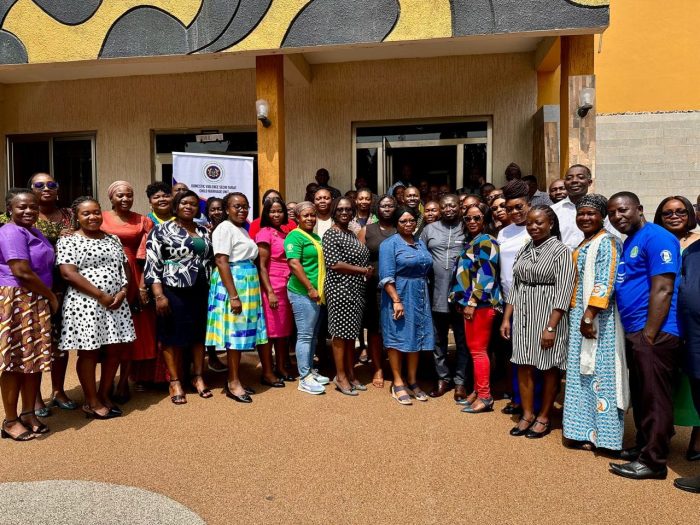CHILD MARRIAGE UNIT HOLD ANNUAL STAKEHOLDERS’ MEETING ON ENDING CHILD MARRIAGE IN GHANA

November 18, 2024 2:33 pm
According to the Annual Results and Phase II of the Global Programme, reports indicate that child marriage disproportionately affects girls, limiting their opportunities and exposing them to various social and health risks.
This underscores the importance of coordinated efforts to protect the rights of adolescent girls and promote gender equality.
In response, the Child Marriage Unit under the Ministry of Gender, Children, and Social Protection, in partnership with UNFPA Ghana and UNICEF Ghana, has organized a two-day residential Annual Stakeholders’ Meeting to review past achievements, discuss ongoing challenges, and strategize for the third phase (2024-2030) of the Global Programme to End Child Marriage (GPECM), from Thursday, 14th to Friday, 15th November 2024, in the Ashanti Region.
The aim of the meeting was to assess the interventions implemented over the past year, track progress, and ensure alignment with the overarching SDG target of ending child marriage by 2030.
Additionally, the session validated the updated National Operational, Monitoring, and Evaluation Plan for 2025-2026, which is part of the Ghana National Strategic Framework to End Child Marriage by 2017-2026 in Ghana.
In her opening remarks, the Head of the Child Marriage Unit, Madam Safia Tamimu on behalf of the Chief Director of MoGCSP, Dr Afisah Zakariah emphasized the urgent need to protect the rights and futures of Ghanaian girls, underscoring the human rights implications and the negative impact on girls’ health, education, and economic potentials.
She highlighted recent initiatives by the ministry, including the study on social protection and child marriage, and another on gender-transformative social behaviour change, aimed at closing gaps and enhancing the impact of interventions.
Madam Safia Tamimu tasked the stakeholders to extend their commitment to every girl child across the country, ensuring they have the freedom to make choices about their lives and future.
Representatives from UNICEF, Madam Joyce Odame, and UNFPA, Madam Doris Aglobitse indicated that the hienous practice remains prevalent, citing the 2021 Population and Housing Census, which reported over 120,000 children aged 12-17 years in marriages or cohabiting relationships. They therefore stressed the need for collaborative efforts, including engaging men, boys, and traditional leaders to drive change at all levels.
UNICEF and UNFPA reaffirmed their commitment to scale up and sustain intensive support for girls’ empowerment in Ghana.
Expected outcomes of the meeting include evaluating the progress of stakeholders’s activities, sharing the updated Operational Plan, strengthening partnerships among stakeholders, and providing updates on the ongoing Impact Evaluation Analysis of the Promoting Adolescent Safe Spaces (PASS) Program.
Each stakeholder made presentions on their activities aimed at addressing child marriage in Ghana.
Source: MoGCSP









